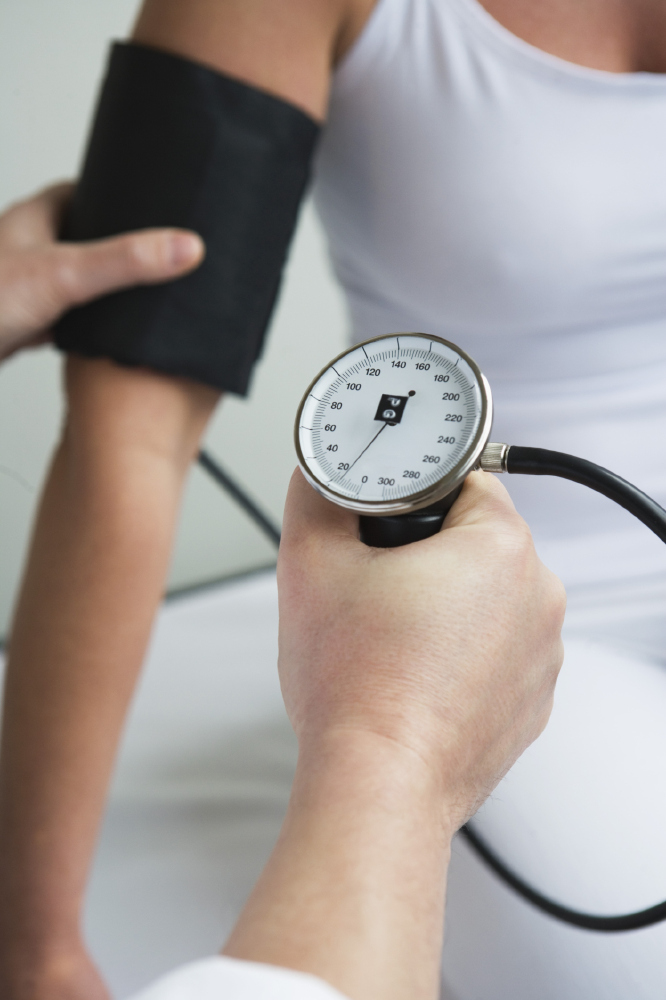
Garlic can be used to help lower blood pressure
28% of women in England have high blood pressure, and it’s time we started to lower that number. Eating garlic could be the answer, according to a new systematic review.
A research review published in October’s Complete Nutrition, - has confirmed the potential for Kwai garlic to contribute to lowering blood pressure by 10%.
Written by Dr Pamela Mason, this systematic review evaluated the findings from 21 human studies and meta-analyses with reference to their influence on blood pressure. Overall, the findings from the 21 studies showed favourable effects of garlic on hypertension.
In particular, this systematic review found clear evidence of a blood pressure lowering effect with those garlic supplements, such as Kwai, which have a guaranteed allicin yield of 1.8mg. The release of allicin appears to be important for the blood pressure lowering effect of garlic.
Not all garlic preparations release allicin in significant, standardised amounts. Extracts or garlic oils prepared by steam distillation or organic solvents have very little, if any, metabolic activity. A controlled trial considered in Mason’s review that compared garlic oil versus standardised dried garlic did not demonstrate a blood pressure lowering effect with garlic oil, but blood pressure again fell significantly with the standardised garlic preparation. Without the presence of allicin particularly at a dose of 1.8mg, as in the Kwai garlic preparations, blood pressure lowering may not occur. More research is needed to understand how garlic providing allicin lowers blood pressure.
Commenting on the latest published review, Dr Catherine Hood notes: “This latest research is fascinating.Dr Mason’s review found evidence that garlic, in particular Kwai, can reduce the stickiness of the blood, results in dilatation of the arteries and has antioxidant activity.
“There is also some evidence that garlic may reduce the activity of angiotensin converting enzyme (ACE), which is the mechanism by which the ACE inhibitor medicines act to lower blood pressure. Mason’s review also points to the possibility that garlic could have an additive effect in blood pressure lowering with anti-hypertensive medication.”
Nutritionist Sarah West notes further: “Dr Mason’s latest review adds to previous research and evidence, in relation to heart health benefits. For instance, previous reviews have pointed to the potential that garlic with an allicin yield like Kwai, helps lower LDL cholesterol and triglycerides – raised levels of these are strongly linked with an increased risk of clogged arteries and coronary heart disease.
“Not all garlic preparations are effective for improving LDL cholesterol. Unless a garlic preparation has effective allicin releasing potential, LDL cholesterol levels may not be reduced. A standardised dried garlic preparation releasing 1.8 mg of allicin per dose, such as Kwai, has been shown to help cut cholesterol while other forms of garlic – such as extracts or garlic oils - have little beneficial activity.”
Dr Mason’s review also continues to demonstrate the benefits of the essential nutrients magnesium, potassium and calcium in helping to reduce blood pressure levels. In particular, evidence shows that magnesium and potassium may act synergistically, particularly in the context of low sodium intake, to maintain a healthy blood pressure.
Overall, this latest systematic review has demonstrated the benefit of a standardised dried garlic preparation - KwaiI - in helping to lower blood pressure.
Tagged in Health Healthy Body blood pressure

